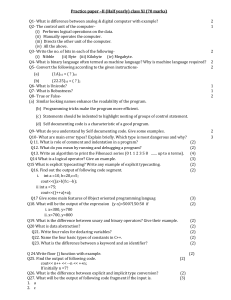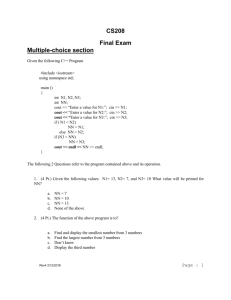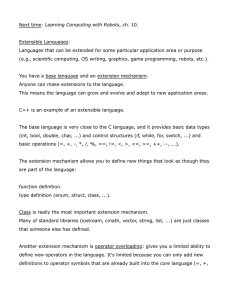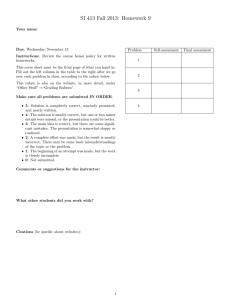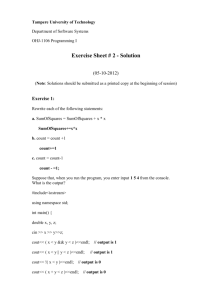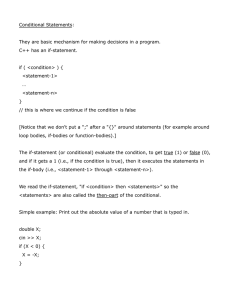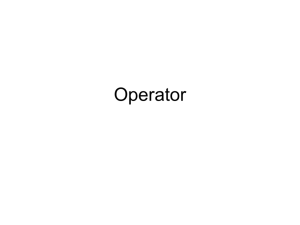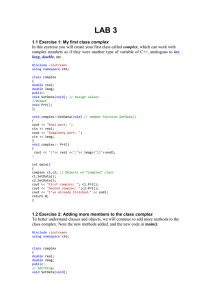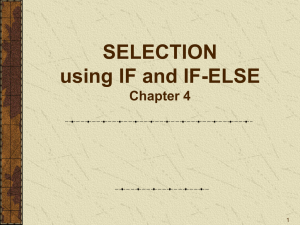Next time: Read TCS, ch. 16. Extensible Languages:
advertisement
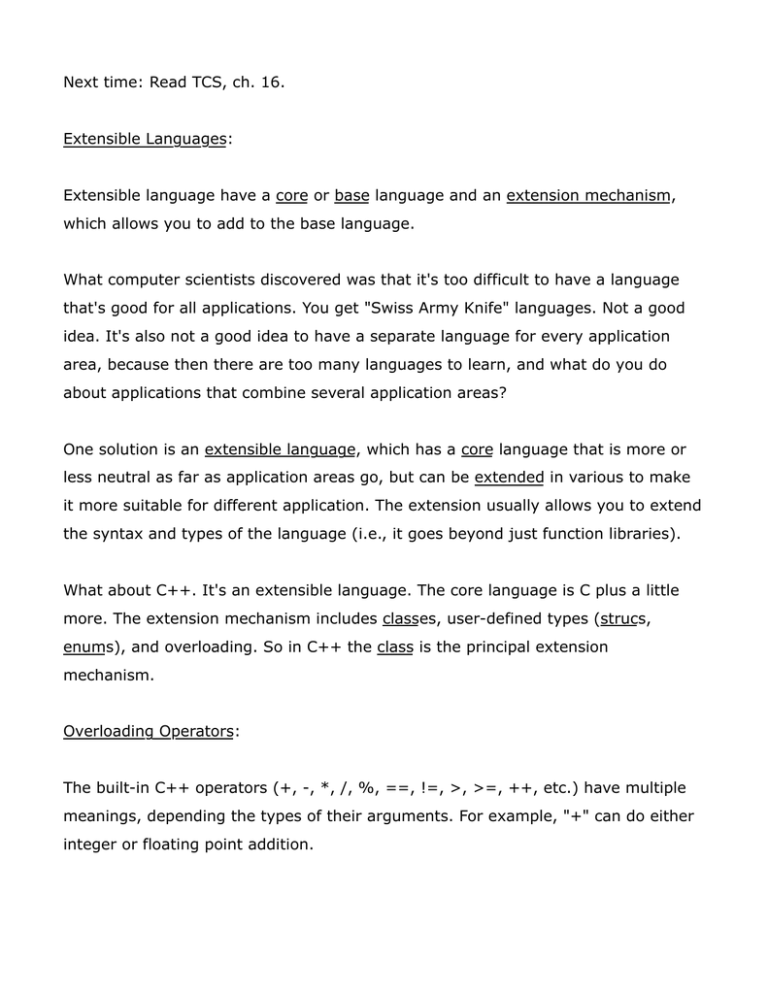
Next time: Read TCS, ch. 16.
Extensible Languages:
Extensible language have a core or base language and an extension mechanism,
which allows you to add to the base language.
What computer scientists discovered was that it's too difficult to have a language
that's good for all applications. You get "Swiss Army Knife" languages. Not a good
idea. It's also not a good idea to have a separate language for every application
area, because then there are too many languages to learn, and what do you do
about applications that combine several application areas?
One solution is an extensible language, which has a core language that is more or
less neutral as far as application areas go, but can be extended in various to make
it more suitable for different application. The extension usually allows you to extend
the syntax and types of the language (i.e., it goes beyond just function libraries).
What about C++. It's an extensible language. The core language is C plus a little
more. The extension mechanism includes classes, user-defined types (strucs,
enums), and overloading. So in C++ the class is the principal extension
mechanism.
Overloading Operators:
The built-in C++ operators (+, -, *, /, %, ==, !=, >, >=, ++, etc.) have multiple
meanings, depending the types of their arguments. For example, "+" can do either
integer or floating point addition.
You can also overload additional meanings on these operators. For example, the
<string> library overloads string concatenation on "+".
There are two ways to overload operators, as nonmember (or standalone) functions
or as member functions. Suppose I want to overload "+" to work on complex
numbers. So I want to be able to write "Z1 + Z2" where Z1 and Z2 are complex
numbers (and get a complex number result).
I can define it like a standalone function:
Complex operator + (const Complex& a, const Complex& b)
{ return Complex (a.real + b.real, a.imag+b.imag); }
So in this case, "Z1 + Z2" is interpreted like a function call, "+ (Z1, Z2)". The
problem, is since this is a nonmember function, it does not have access to the
private variables of functions of Complex.
Alternately, you could make "+" a member function of Complex:
class Complex {
….
public:
Complex operator + (const Complex& b) const {
return Complex (real + b.real, imag + b.imag);
}
}; \\ Complex class
In this case, the operation "Z1 + Z2" is interpreted as a call on a member function
of Z1: "Z1.+(Z2)"
The advantage is that "+" is part of the definition of Complex, and so it has direct
access to the private member variables.
Overloading Insert (<<):
When you write "cout << N" that calls the "<<" (insert) operator with two
arguments, an output stream (cout in this case), and something to insert into that
output stream (N in this case).
But you know that you chain inserts together:
cout << "Ans = " << N << endl;
This works because << associates to the left and return its left argument as its
values. So the above means:
(((cout << "Ans = ") << N) << endl);
Working from inside out, (cout << "Ans = ") inserts the string "Ans = " into the
stream cout, and returns cout as its value. So the value of the inner parens is cout,
and the effect is:
((cout << N) << endl);
So this inserts N into cout and returns cout, to get
(cout << endl);
How do you want to print out Complex numbers? What do you do if the imaginary
part is negative?
What do you do if the imaginary part is zero?
What do you do if the real part is zero?
What do you do if they are both zero?
It's important to make sure you address all the possibilities!
The same applies to the extract operator (>>). "cin >> N" extracts from an input
stream cin into N and returns the stream. So ideally whenever you define a new
data type, you should define insert and extract operators to go with it. (Defining
extractions is more complicated because you have to parse and error-check the
input.)
